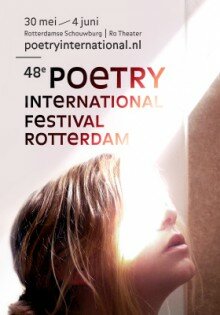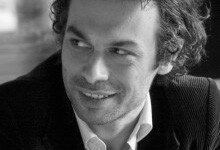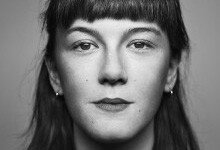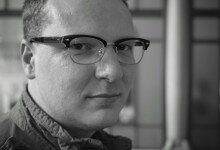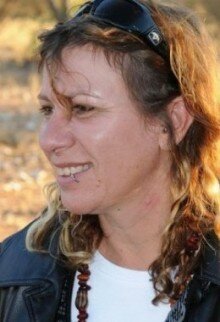
Ali Cobby Eckermann is a Yankunytjatjara / Kokatha kunga (woman) born on Kaurna land in 1963. As a baby Ali was adopted into the Eckermann family. After failed attempts she was assisted by Link Up to find her mother Audrey, and four years later her son Jonnie. Her journey was supported by many members of the Stolen Generations. She regularly visits her traditional family in rural and remote South Australia; to learn and to heal. After nearly thirty years in the Northern Territory, Ali chooses to live in the ‘intervention-free’ village of Koolunga, South Australia, where she is renovating the old general store and establishing an Aboriginal Writers Retreat. Ali is currently researching Aboriginal massacres in South Australia and was awarded grant money for this project by the Australia Council.
Ali Cobby Eckermann’s first book of poetry little bit long time was published by the Australian Poetry Centre as part of the New Poets series in 2009. little bit long time sold out in months and has been reprinted by Picaro Press. Along with the publication of ‘Intervention Payback’ in that year’s Best Australian Poetry edited by Robert Adamson, little bit long time introduced Ali Cobby Eckermann’s work to an Australian audience and firmly established her as a strong and vital emotive voice within Australian Aboriginal literature and one of the most remarkable poets to emerge in Australian poetry since the 1970s. Her work has garnered her many invitations to national and international literary festivals, including the prestigious Ubud Writers and Readers Festival held each year in Indonesia. Her second collection, Kami, was published in 2010 by Vagabond Press.
Ali has won several awards including First Prize in ATSI Survival Poetry competition in 2006, First Prize Dymocks Red Earth Poetry Award NT in 2008, and was Highly Commended for the Marion Eldridge Award in 2009. Her poetry has been translated and published in Croatia, Indonesia, Greek and New Zealand. Her first verse novel My Fathers Eyes will be launched in Sydney March 2011. When asked why she writes, Cobby Eckermann responded:
I guess I write for both my families, and for my ongoing healing that I need in my life. Mostly though for the Aboriginal audience. It is my biggest thrill is when they attend any forum to hear my words. I have been amazed at the reaction from the wider Australian and international audiences to my poetry, which encourages me to keep writing too . . . Poetry has also been the tool to assist my adopted family to understand some of the change that occurred deep within myself. I often say “poetry saves lives”.
Cobby Eckermann first started writing and publishing poems from an early age, but it was not until her mid thirties that she began to write and publish regularly. She entered the Bachelor College of Indigenous Tertiary Education in Alice Springs in 2001 to study creative writing, which resulted in various performances and publications coinciding with a period of great change as she reconnected to her Aboriginal heritage:
I loved that classroom of Aboriginal writers, as it was the year that I met my son again; he was eighteen. My life was changing rapidly (I had only met my birth mother four years previous) and poetry was my life-line, as were those handful of students and Aboriginal lecturer / poet and author Ms Terry Whitebeach. As my reconnection with family took me further and further into the desert, and back to traditional Yankunytjatjara roots, the poetry sang louder and I began to discover who I was born to be.
Responding to Cobby Eckermann’s first collection, her teacher and mentor Terry Whitebeach noted, “These are the offerings of a writer who has journeyed with great determination through apparently irretrievable loss, through chaos, disintegration and desolation, who has harvested the gifts of insight and emotional and spiritual intelligence and compassion, and who now reveals these insights to the eyes and ears of others through lucid images and punchy language.” Whitebeach zeroes in on the lucidity, intelligence and compassion, the deft control of language that makes Ali Cobby Eckermann a successor to the late Dorothy Porter. Poems such as ‘Wild Flowers’ and ‘Kumana’ exhibit the same clarity and careful use of language, combining Aboriginal English, Yankunytjatjara and Australian English, to create unfamiliar and powerful effects from the demotic, the everyday accents of Australian, so that the reader is forced to look more closely at what was familiar. Poems such as ‘I Tell Ya True’, ‘Intervention Payback’ and ‘Grade One Primary’ use these same gifts to give voice to the brutal realities of Aboriginal experience and dispossession experienced since colonisation and ongoing today. Cobby Eckermann’s poetry is courageous in its ability to look at present and past brutalities directly and remain compassionate.
I hope that audiences who hear my words will have a better understanding of Aboriginal life and the emotional impact of past and present (bad) policy, especially the Stolen Generations. If this can be achieved through my poetry and prose then I can die happy. This drive has prompted me to open Aust’s first Aboriginal Writers Retreat in my home at Koolunga in mid north South Australia, in the aim for more grassroots and heartfelt Aboriginal literature to be written and published.
Bibliography
Poetry
Kami, Vagabond Press, Rare Objects Series, Sydney, 2010
little bit long time, New Poets Series, Australian Poetry Centre, Melbourne, 2010
Verse novel
My Fathers Eyes, Laguna Bay Educational Press, 2011
Links
Aboriginal Writers Retreat
Ali Cobby Eckermann feature on ABC’s Poetica
Stories by Ali Cobby Eckermann on the ABC website
Terry Whitebeach reviews little bit long time on University of Queensland website


